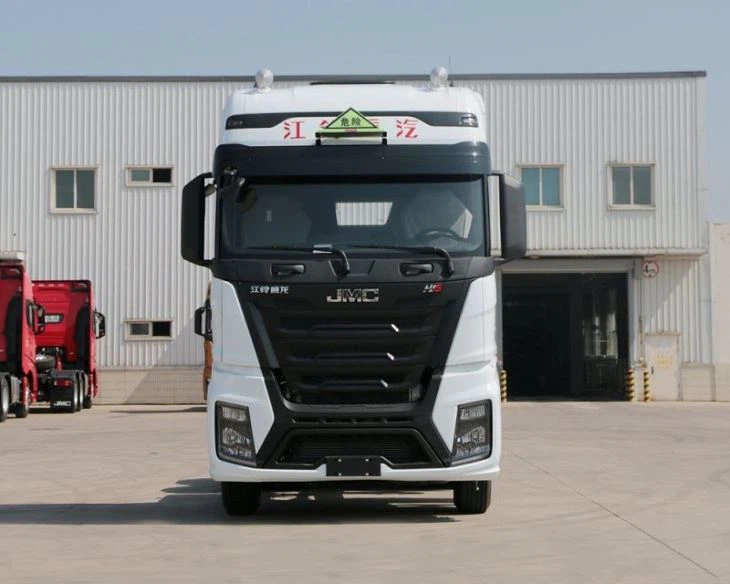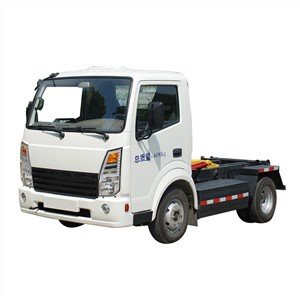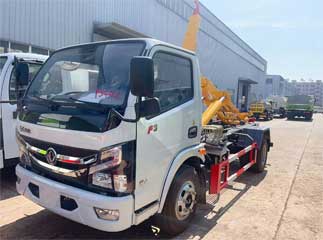Understanding Garbage Container Trucks: Essential Insights and Practical Guidelines

Introduction
Garbage container trucks play a pivotal role in our waste management systems, ensuring that refuse is collected efficiently and disposed of in an environmentally friendly manner. These specialized vehicles are designed to handle a variety of waste materials, often equipped with advanced technology to aid in collection and transportation. This article delves into the different types of garbage container trucks, their operational features, maintenance tips, and the importance of proper waste management solutions in our communities.
1. What is a Garbage Container Truck?
A garbage container truck is a vehicle designed specifically for collecting and transporting waste materials from homes, businesses, and public areas to disposal or recycling facilities. These trucks come in various sizes and configurations to accommodate different waste volumes and types, making them a crucial component of urban sanitation operations.
1.1 Types of Garbage Container Trucks
There are several types of garbage container trucks, each designed for specific waste collection needs:
- Front Loader Trucks: Typically used for commercial waste containers, these trucks have a powerful hydraulic system that lifts and dumps waste from the front.
- Rear Loader Trucks: Ideal for residential areas, these trucks have an opening at the back that allows waste to be loaded in manually or mechanically.
- Side Loader Trucks: Featuring a hydraulic arm, these trucks can pick up waste bins from the side, which is efficient for residential routes.
- Roll-off Trucks: These trucks accommodate large containers that can be dropped off and picked up at various locations, ideal for construction or significant waste projects.

2. Operating Mechanisms of Garbage Container Trucks
Understanding how garbage container trucks operate can provide insight into their efficiency and role in waste management.
2.1 Hydraulic Systems
Most garbage trucks are equipped with hydraulic systems that enable the lifting and dumping of waste containers or bins. This system reduces manual labor and increases collection speed.
Examples of Hydraulic Mechanisms
| Truck Type | Hydraulic Feature | Function |
|---|---|---|
| Front Loader | Lift Arm | Raises and tilts container for dumping |
| Rear Loader | Compaction System | Compresses waste for maximum load |
| Side Loader | Robot Arm | Collects waste bins from curbside |
2.2 Compaction Technology
Compaction technology helps maximize the amount of waste transported in a single trip, reducing the number of trips needed to disposal sites. This is crucial for greenhouse gas emissions reduction and lower operational costs.
3. Environmental Impact
Garbage container trucks significantly influence environmental management and sustainability. An understanding of their role can improve community awareness and participation in waste management efforts.
3.1 Reducing Carbon Footprint
By optimizing routes and maintaining efficiency, garbage container trucks contribute to lower carbon emissions. Many municipalities are adopting smart waste management systems that track truck routes to ensure minimal environmental impact.
3.2 Recycling and Waste Sorting
Many modern garbage trucks are equipped with features that facilitate waste sorting and recycling. This capability promotes recycling rates and helps divert waste from landfills.
4. Maintenance Tips for Garbage Container Trucks
Regular maintenance is crucial for the safe and efficient operation of garbage container trucks. Below are some practical tips for fleet managers and operators.
4.1 Routine Checks
Conduct regular inspections of the hydraulic, electrical, and mechanical systems. Maintain a checklist to ensure no aspect of the truck’s functionality is overlooked.
4.2 Cleaning and Hygiene
Keep the truck clean, especially the containers. Regular washing helps in maintaining hygiene and prolonging the lifespan of the truck.
4.3 Training for Operators
Continuous training for operators is essential. Proper education on truck operation and maintenance can prevent accidents and breakdowns.
5. Cost Analysis of Garbage Container Trucks
The investment in garbage container trucks varies widely based on type, capacity, and technology features. It’s essential to perform a cost analysis before purchasing or leasing these vehicles.
5.1 Purchase vs. Lease
Consider the benefits and drawbacks of purchasing versus leasing. While purchasing can be costly upfront, leasing offers flexibility and lower initial expenses.
5.2 Long-term Operational Costs
Evaluate the long-term operational costs: fuel consumption, maintenance, and potential downtime. Choose models that are known for fuel efficiency and reliability.
6. Innovations in Garbage Container Truck Technology
As technology advances, garbage container trucks are becoming more efficient and environmentally friendly.
6.1 Electric and Hybrid Models
Electric garbage trucks are emerging as a sustainable alternative, reducing fossil fuel dependency while cutting down on noise pollution. Major cities are testing these models for environmental benefits.
6.2 Smart Waste Management Solutions
Smart sensors and GPS technology have been integrated into garbage container trucks to optimize routes and monitor garbage levels in bins, ensuring timely collection and reducing unnecessary trips.
7. The Role of Garbage Container Trucks in Community Health

Regular waste collection by garbage container trucks is essential for community health. Proper waste management can help reduce pest infestations, pollution, and related health risks.
7.1 Promoting Cleanliness
Efficient waste collection leads to cleaner streets and neighborhoods, fostering a sense of community pride and encouraging local environmental initiatives.
7.2 Impact on Public Health
Litter, uncollected waste, and overflowing bins can lead to health concerns, including the spread of disease. Regularly scheduled garbage collection helps mitigate these risks.
8. Tips for Effective Waste Management in Communities
Residents can assist in waste management by following specific practices to improve community efforts.
8.1 Proper Waste Sorting

Encourage separating recyclables from general waste. This improves recycling rates and decreases landfill volume.
8.2 Community Clean-Up Events
Organize community cleanup days to foster a sense of responsibility and pride. These events can help reduce litter and will likely lead to more active community engagement.
9. FAQ Section
9.1 What types of waste can garbage container trucks collect?
Garbage container trucks are designed to handle solid waste, including household trash, commercial waste, and recyclables. Some specialized trucks can also handle construction debris.
9.2 How often are garbage container trucks scheduled for collection?
The frequency of garbage collection varies based on local regulations, community needs, and the volume of waste generated. Typically, residential areas may have scheduled collections weekly or bi-weekly.
9.3 Are electric garbage trucks effective?
Yes, electric garbage trucks are becoming increasingly effective, offering lower operating costs and emissions. As battery technology improves, their range and performance continue to enhance.
9.4 How can I minimize waste in my community?
Promoting recycling programs, reducing single-use plastics, and participating in local clean-up days are effective ways to minimize waste. Community education is also essential for raising awareness.
9.5 What safety features should garbage container trucks have?
Garbage container trucks should be equipped with features such as rear cameras, warning lights, audible alarms, and well-maintained brakes to ensure the safety of both operators and pedestrians.
9.6 How do garbage trucks contribute to environmental sustainability?
Garbage trucks contribute to environmental sustainability by reducing waste sent to landfills, promoting recycling and composting, and optimizing routes to lower carbon emissions.
